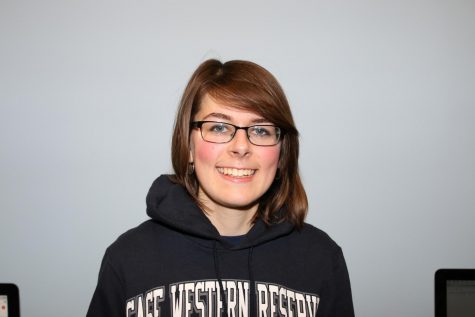Reflections on the past four years
April 28, 2023
If someone told me in April 2019 that my undergraduate experience would be what it became, I have no idea how I would respond. A lot of people told me it would be the best years of my life so my expectations were high. The first semester-and-a-half of my time at Case Western Reserve University met those expectations, which came crashing down when a global pandemic sent most of the student body home. As lockdowns started and continued to be extended, I found myself questioning if I would return to CWRU’s campus before my senior year.
Contrary to my cynical prediction that remote learning might continue through the end of my junior year, I did come back to CWRU’s campus halfway through my sophomore year. I was skeptical as to whether or not students would be allowed to stay there through the end of the academic year, but we fortunately were able to. Learning to navigate a dramatically different campus life was difficult and continued to be through my junior year. It was a major adjustment that I often struggled with. Unlike previous semesters, where connection and socialization were easily available, it was normal for me not to speak to anyone besides my roommates in nonacademic or student organization settings for prolonged periods of time during spring 2021. I often felt isolated and frustrated by how the pandemic was being handled. My junior year was comparatively better, but still challenging because of the lingering effects of COVID-19.
The Observer gave me a space to say something about the challenges of campus life during the pandemic. Looking back at the articles I wrote during or after March 2020, COVID-19 is by far the most common topic. Over a third of my articles from this time focus on the pandemic. Within this selection of COVID-19 articles, the majority are critiques of how the university responded to the virus, most of which I stand by today.
At the time, I wasn’t entirely sure what I was accomplishing, if anything, by writing my articles. I assumed that someone would read them. I hoped they would, at minimum, reach someone who was thinking the same thing and would find some relief in knowing they weren’t alone. I doubted they would reach anyone who could make any of the changes I was calling. I certainly didn’t expect that they would be seen by anyone outside of the CWRU community.
My belief that my article circulation was limited to the campus community was proven incorrect when I got a request from MSNBC to interview with them. They were curious about a piece I wrote on CWRU’s decision to host the first presidential debate at the Health Education Campus. While the interview ultimately got canceled because it was scheduled for the day that The New York Times released information about Donald Trump’s tax returns, it showed that I had a larger audience than I thought. My pieces were online. Anyone could read them.
I got an even better appreciation of how far my articles could spread after a piece I wrote titled “I unknowingly ate a $15,000 Oreo” became the top trending article on The Observer’s website for a considerable amount of time. I learned from members of the editorial board that it had gotten thousands of views which was a powerful feeling. While I wrote the article primarily for entertainment purposes, it was nice to know that I had such a large platform.
The conclusion of my time at CWRU is incredibly bittersweet. I simultaneously did more than I thought I could and feel as though so much of my undergraduate experience is missing, probably because of the pandemic disruptions. Throughout all of this, The Observer was a throughline that helped me navigate college. It was a space where I knew I could make my voice heard, no matter how invisible I felt. It helped me find my voice during difficult times. For all of this and more, I am extremely thankful for the years I spent writing for The Observer.


